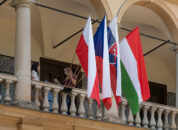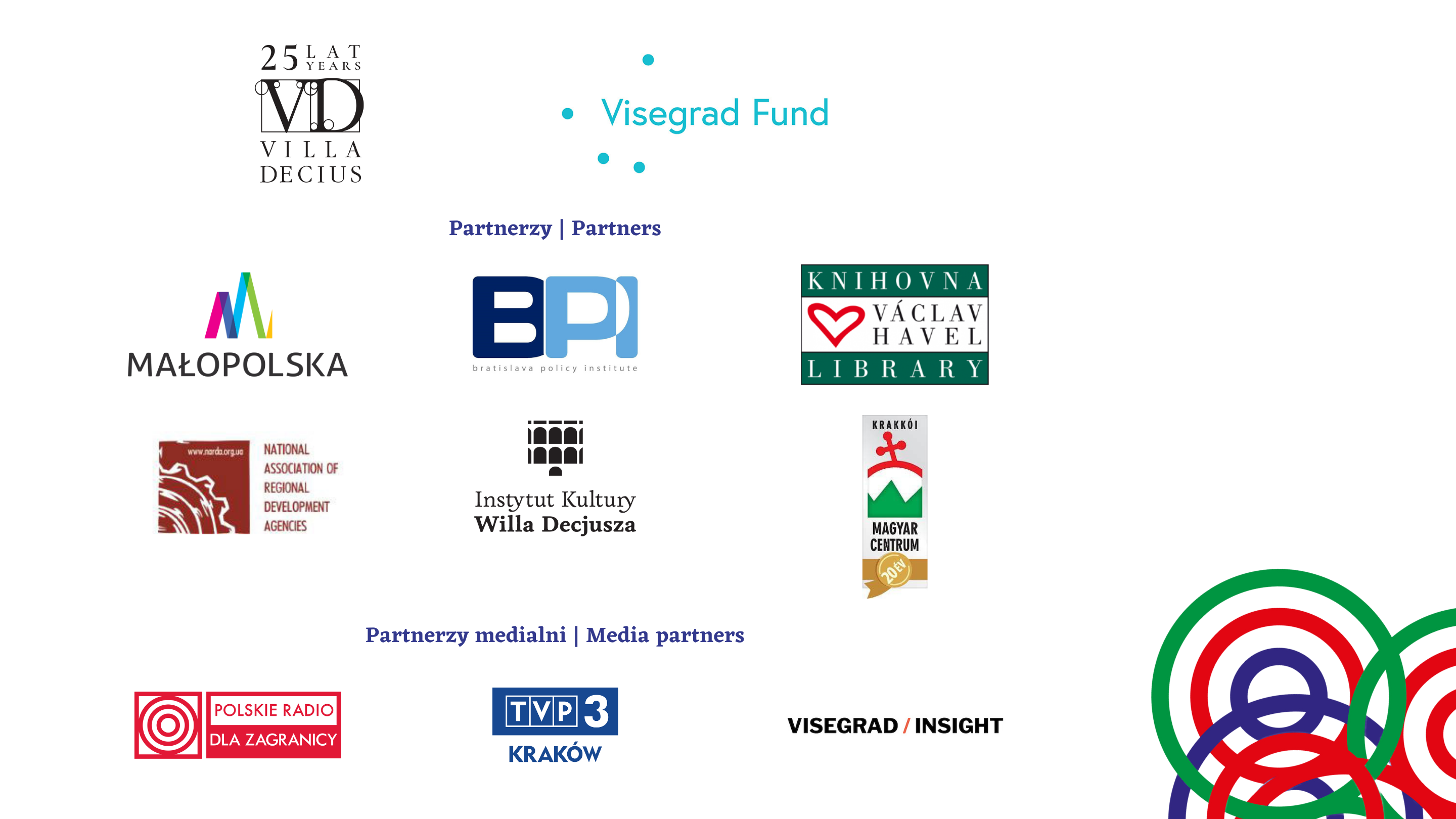
On July 5, at Villa Decius, we met to officially start the 19th edition of the Visegrad Summer School, a project that has been inspiring and giving a chance for development to young leaders, students and citizens of the Visegrad Group and neighboring countries for years.
This year, twenty-nine participants from 10 countries attended the School as well as 15 experts from across Europe, the project was funded by the International Visegrad Fund, the Malopolska Region and Municipality of Krakow. During ten days of the VSS we were honored to host representatives of the diplomatic and consular Corps – Dr. Tomáš Kašaj – Consul General of the Slovak Republic in Krakow, Márta Ritecz-Sekulic – Deputy Consul General of Hungary in Krakow, Tibor Opěla – First Secretary of the Embassy of the Czech Republic in Poland, Patryk Błaszczak – Deputy Director of the European Policy Department in MFA and National Coordinator of Visegrad Cooperation, with whom we evaluated the past 30 years of the Visegrad cooperation.
The introduction to the 19th edition of the Visegrad Summer School was the opening of the exhibition “Visegrad is People” which took place on July 4, 2021, and started the discussion od the 30 years of cooperation between Visegrad Group countries. On the eve of the official opening of the project, participants gathered at Villa Decius for an evening dinner and movie prelection entiteld: “Our Waszek. On the strength of the powerless ”, dir. Krystyna Krauze. Immersed in a film reflection on the fate and achievements of the President of Czechoslovakia and the Czech Republic, Vaclav Havel, the participants traveled to the birth beginings of the Visegrad concept.
The inaugural lecture entitled: Visegrad Looks Ahead – Humanizing AI (delivered by prof. Aleksandra Przegalińska-Skierkowska) turned our attention to the future challenges and impact of the new technologies. During intensive workshops our participants addressed questions important for the business and innovation sector as well as possibilities of development of cultural heritage by combining those two fields. Extracurricular activities included study visits in Krakow and the Malopolska region as well as the multiCOOLtural evening prepared by the participants which was the basis for even better mutual integration.
An organized bicycle trip to Tyniec, during which participants could admire the picturesque views of Małopolska, allowed to recharge the batteries for the next challenges and days of workshops. Staying in great spirits, the participants also took part in a walk around the Old Town, which was an opportunity to look for similarities between other Visegrad countries.
The School would not have taken place without help and support of our friends and partners: Dr. Patrícia Pászt from the Cracovia Express Foundation in Budapest, H.E. Michael Žantovský from the Vaclav Havel Library in Prague, Dr. Viera Žúborová from Bratislava Policy Institute, Olga Maksymenko from The National Association of Regional Development Agencies, Kiev and without your personal commitment.
At this point, we would like to thank all the participants, experts, sponsors and media partners without whom this project would not be possible.
Good luck to all Participants of the 19th edition of the Visegrad Summer School!














































